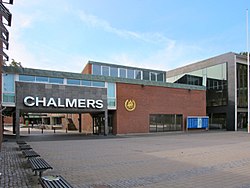The University of Queensland's Australian Institute for Bioengineering and Nanotechnology (AIBN) is a dynamic multi-disciplinary research institute dedicated to developing technology to alleviate societal problems in the areas of health, energy, manufacturing and environmental sustainability. AIBN brings together the skills of more than 450 world-class researchers complimented by an extensive suite of integrated facilities, working at the intersection of biology, chemistry, engineering and computer modelling.
With a reputation for delivering translational science, AIBN conducts research at the forefront of emerging technologies, and has developed strong collaborations with leading members of industry, academia and government. AIBN goes beyond basic research to develop the growth of innovative industries for the benefit of the Queensland and Australian economies.
About This Opportunity
As Postdoctoral Research Fellow, you will conduct research as a part of the ARC Laureate fellowship awarded to Professor Alan Rowan, in collaboration with the group of Professor Kristofer Thurecht (CAI) with the main focus of studying the biodistribution characteristics of semiflexible polyisocyanopeptide-based polymers. In addition, you will focus your efforts on developing your expertise and emerging research profile in the disciplines of polymer synthesis, characterisation and material biodistribution animal studies. At this level the incumbent will be supported and guided by more senior academic staff with the expectation of an increasing degree of autonomy over time.
This position is located at our picturesque St Lucia campus, renowned as one of Australia’s most attractive university campuses, and located just 7km from Brisbane’s city centre.
Our Ideal Candidate
You will hold a PhD (or progress towards PhD) in the area of polymer science, chemistry or related discipline. In addition, experience in small molecule chemical synthesis, techniques related to polymer science and characterisation, as well as conducting animal studies focused on material’s biodistribution and their data evaluation will be integral to the success of this role. A strong desire to conduct meaningful research, aimed towards making high-impact findings and publications is also essential. Your excellent communications, interpersonal and organisational skills will see you excel in this role.
We value diversity and inclusion, and actively encourage applications from those who bring diversity to the University. Our Diversity and Inclusion webpage contains further information if you require additional support. Accessibility requirements and/or adjustments can be directed to recruitment@uq.edu.au.
You must have unrestricted work rights in Australia for the duration of this appointment to apply. Visa sponsorship is not available for this appointment.
What We Can Offer
This is full time, fixed term position for up to 12 months at Academic Level A.
The full-time equivalent base salary will be in the range $70,729.74 - $94,637.91 plus super of up to 17%. The total FTE package will be in the range $82,753.80 -$110,726.35 per annum.
You will be able to take advantage of UQ Sport Facilities, recreation leave loading, salary sacrificing options, on-campus childcare, discounted private health insurance, cheap parking, development programs and many other benefits.
For further information, please review The University of Queensland's Enterprise Bargaining Agreement 2018-2021.
Position Description
![]() 514010_Postdoctoral Research Fellow_PD.pdf
514010_Postdoctoral Research Fellow_PD.pdf
Questions?
To discuss this role please contact Professor Alan Rowan or Dr Jan Lauko .
For application queries, please contact recruitment@uq.edu.au stating the job number in the subject line.
Want to Apply?
To submit an application for this role, use the apply button. All applicants must supply the following documents:
- Cover letter
- Selection criteria responses addressing each of the selection criteria
- Resume
To satisfy pre-requisite questions and ensure your application can be considered in full, all candidates must apply via the UQ Careers portal by the job closing deadline. Applications received via other channels including direct email will not be accepted.
#LI-DNI
Advertised: 29 Apr 2021
Applications close: 13 May 2021 (11:00 PM) E. Australia Standard Time




